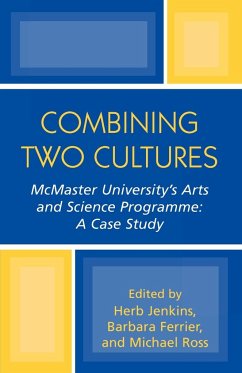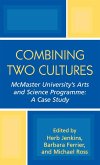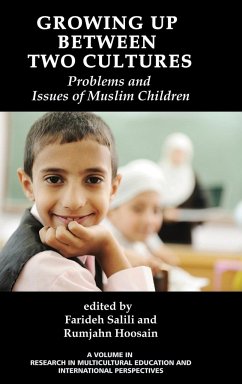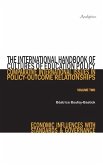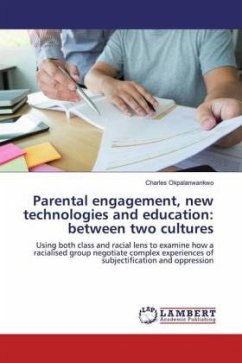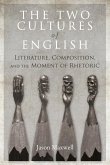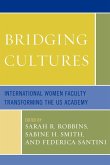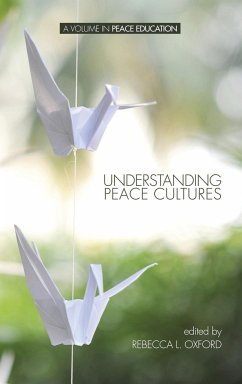Research-intensive universities have long struggled to reconcile the imperative of specialized learning with the need for a broader, more liberal education. Combining Two Cultures provides a comprehensive account of a degree program at a distinguished Canadian university, McMaster, aimed at accomplishing this synthesis.
Hinweis: Dieser Artikel kann nur an eine deutsche Lieferadresse ausgeliefert werden.
Hinweis: Dieser Artikel kann nur an eine deutsche Lieferadresse ausgeliefert werden.
Since C.P. Snow coined a famous term for an old dichotomy?namely, the Two Cultures?attempts have been made to overcome the great divide between the humanities and the sciences in the modern university and in modern culture. Most attempts have failed topay anything more than lipservice?the divide remains enormous. But since 1981, McMaster University in Hamilton, Ontario, has put its money where its mouth is by offering the justifiably prestigious undergraduate degree programme (students selected from amongst some of the best in the country) combines a thorough liberal arts and humanities schooling intertwined witha comprehensive science education (including math, physics, and biology). Unique in its origins, the Arts and Science programme has becomea model for fully integrated science and liberal arts programmes across North America. 'Combining Two Cultures', collectively written to commemorate the 25th year of this exemplary programme, brings together past and present Arts and Sciencesfounders, instructors, directors and commentators to explore in detail the birth, history,. structure, meaning, place, and future of this uniquely integrated programme? its instructional philosophy, the structure of its instruction, and its place in the u -- Gordon McOuat, Director of the History of Science and Technology Program, King's College, Halifax Since C.P. Snow coined a famous term for an old dichotomy-namely, the "Two Cultures"-attempts have been made to overcome the great divide between the humanities and the sciences in the modern university and in modern culture. Most attempts have failed to pay anything more than lipservice-the divide remains enormous. But since 1981, McMaster University in Hamilton, Ontario, has put its money where its mouth is by offering the justifiably prestigious undergraduate degree programme (students selected from amongst some of the best in the country) combines a thorough "liberal arts and humanities" schooling intertwined witha comprehensive science education (including math, physics, and biology). Unique in its origins, the "Arts and Science" programme has become a model for fully integrated science and liberal arts programmes across North America. 'Combining Two Cultures', collectively written to commemorate the 25th year of this exemplary programme, brings together past and present "Arts and Sciences" founders, instructors, directors and commentators to explore in detail the birth, history,. structure, meaning, place, and future of this uniquely integrated programme- its instructional philosophy, the structure of its instruction, and its place in the university and body politic. The excitement and skill of their mission jump from every page. (An interesting and delightful addition to the book is the set of responses from graduates of "Arts and Sciences" in their own words showing the program's success at producing well-rounded, confident, and socially engaged public intellectuals.) 'Combining Two Cultures' will be of much interest to those concerned about the fate of education in our modern culture, to educators and students alike, to those who are engaged in similar and hopeful enterprises, and especially tho those who, like C.P. Snow, see enormous value-indeed, urgency-in the overcoming of the 'Two Cultures' dichotomy in our modern world. -- Gordon McOuat, Director of the History of Science and Technology Program, King's College, Halifax

